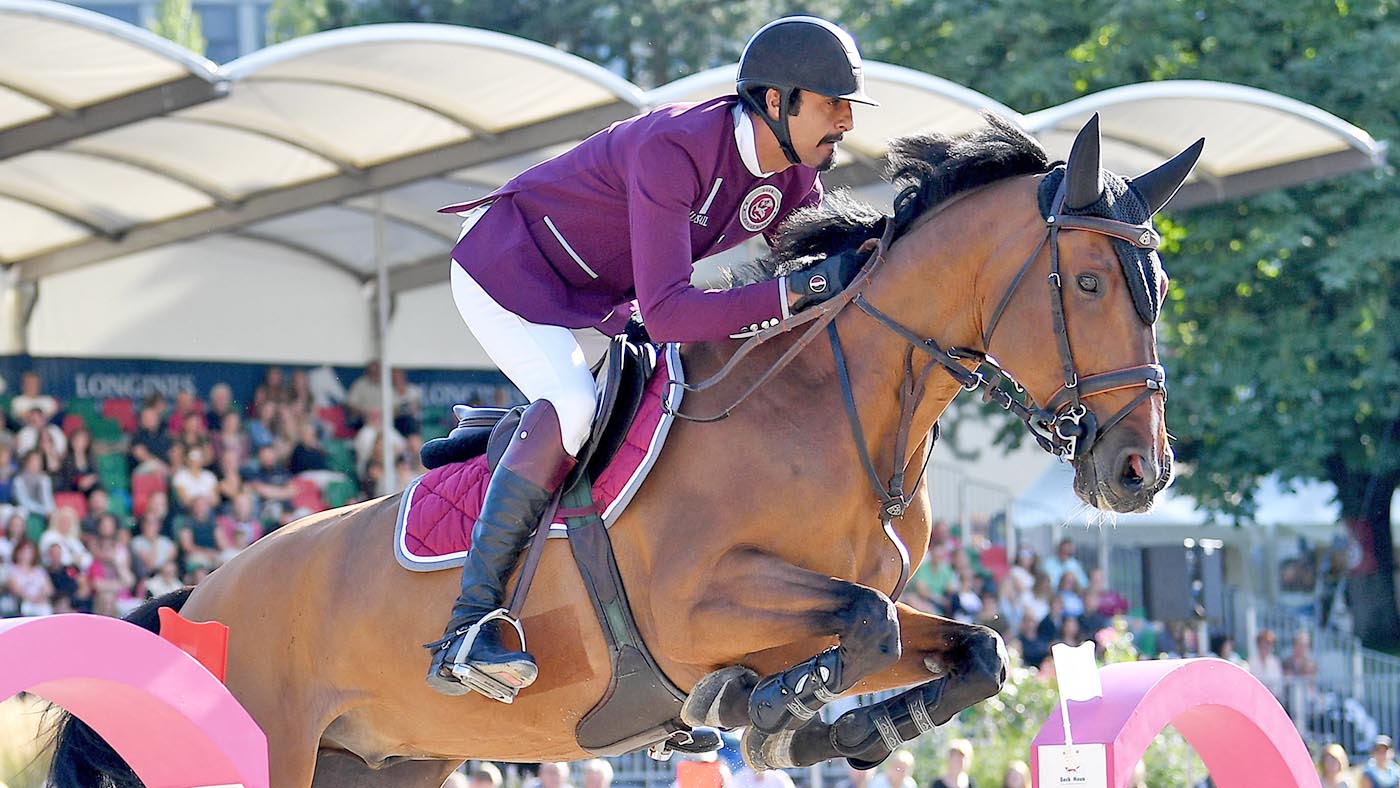Riders whose positive dope tests led to their country’s losing its place at this summer’s Olympics claim they were sabotaged by a rival nation adding cannabis to their shisha. H&H looks into the facts behind the FEI’s decision to reallocate the Tokyo ticket...
Qatar claims the failed dope tests that led to the country’s losing its Tokyo showjumping place were caused by the Moroccan team’s sabotaging Qatari shisha by adding cannabis.
The Moroccan team takes the Olympic ticket lost by Qatar as a result of riders Sheikh Ali Al Thani, 37, and Bassem Mohammed, 32, both testing positive for a metabolite of cannabis, carboxy-THC, at an Olympic jumping qualifier in October.
The case was heard by the FEI Tribunal, which released a partial decision on the case this week (15 February). It found that the two riders’ individual results must be disqualified as a result of the positive tests, which means Qatar’s team result cannot count. The FEI has reallocated the team spot to Morocco.
The Tribunal heard that both riders denied knowingly using cannabis in any form during the show, but they are “convinced that the only plausible explanation for the positive tests and the values detected was that they were unknowingly exposed to cannabis during their visits to the hotel’s shisha bar in Rabat, which they visited on a daily basis during the event”.

Qatari showjumper Sheikh Ali Al Thani.
Smoking shisha is very popular in Qatar, the Tribunal heard, and particularly used for athletes to relax. And while shisha is also popular in Morocco, a substance called kif, Moroccan cannabis, is often used with or instead of the shisha tobacco.
It was confirmed by witnesses that the team manager had “strictly” overseen the riders to ensure only shisha tobacco would be used, and it was “very implausible” the riders would have knowingly put themselves in such a situation, as “to use a substance that did not even enhance the performance at such an important event would be stupid”.
The riders concluded the kif must have been added to their shisha, and have filed a criminal case with authorities in Morocco, their fiercest rival in the competition and the one set to benefit from Qatar’s disqualification. They believe this is a case of “sabotage of Qatari shisha by the Moroccan team which takes its Olympic place”.
Qatar raised procedural complaints, such as querying the time they had to prepare for the Tribunal hearing, which was held sooner than would normally be the case owing to the approaching Games. But the Tribunal ruled that they had had enough time, that the results should be disqualified, and that the fact an Olympic qualifier was involved was another reason to issue at least a partial decision, on the disqualification, at this point.
The Tribunal found a decision on the riders’ fault or negligence for the positive tests did not need to be made, and had not been requested.
The report reads: “The Tribunal finds that the wording of [the relevant rule] is clear, strict and not open for arguments based on ‘no fault or negligence’, or ‘no significant fault or negligence’. The automatic disqualification of individual results has been consistently followed by the Tribunal in positive doping cases, both for athletes and horses, with the rationale of protecting horse welfare and to ensure a level playing field.”
The reports adds that it does not matter that cannabis has no performance-enhancing effect, as it is a prohibited substance.
It adds: “For the avoidance of any doubt, the present decision is not a decision on the merits of these cases, and therefore it is not fully relevant – at this point in time – whether the explanations of sabotage might materialise over the course of the athletes’ investigation. It is also to be noted that the cases at hand only concern the anti-doping rule violations. The Tribunal also wishes to clarify that proceedings in front of the Tribunal are of disciplinary nature and not criminal. While the Tribunal might suspend proceedings where there are parallel criminal proceedings ongoing, and await their outcome, the Tribunal is not obliged to do so.”
The riders have 21 days to appeal to the Court of Arbitration for Sport, and a final decision, including on sanctions and costs, will be issued at the end of proceedings.
You might also be interested in…

Owner’s hairspray causes showjumper’s positive dope test
The rider and the owner’s wife were unaware he was using the product

William Whitaker’s Tokyo hopes dashed after losing his top horses *H&H Plus*
Leading British showjumper William Whitaker has lost the ride on several of his top horses after a change in business

Endurance rider whipped horse ‘because it was lonely’
The ‘promising young rider’ used an extra pair of reins to hit his horse

Shows stripped of ranking points after FEI makes blunders *H&H Plus*

Wee warning: horse fails dope test after stable lad caught short
Authorities have warned of the dangers of urinating in stables after the positive test

